
"Cinderella", or "The Little Glass Slipper", is a folk tale with thousands of variants throughout the world. The protagonist is a young woman living in forsaken circumstances that are suddenly changed to remarkable fortune, with her ascension to the throne via marriage. The story of Rhodopis, recounted by the Greek geographer Strabo sometime between around 7 BC and AD 23, about a Greek slave girl who marries the king of Egypt, is usually considered to be the earliest known variant of the Cinderella story.
Cinderella Op. 87, is a ballet composed by Sergei Prokofiev to a scenario by Nikolai Volkov. It is one of his most popular and melodious compositions, and has inspired a great many choreographers since its inception. The piece was composed between 1940 and 1944. Part way through writing it Prokofiev broke off to write his opera War and Peace. The premiere of Cinderella was conducted by Yuri Fayer on 21 November, 1945, at the Bolshoi Theatre, with choreography by Rostislav Zakharov and Galina Ulanova in the title role. Cinderella is notable for its jubilant music, lush scenery, and for the comic double-roles of the stepmother and the two stepsisters, more mad than bad in this treatment.

Cinderella is a 1950 American animated musical fantasy film produced by Walt Disney. Based on the fairy tale of the same name by Charles Perrault, it is the 12th Disney animated feature film. The film was directed by Wilfred Jackson, Hamilton Luske, and Clyde Geronimi. Mack David, Jerry Livingston, and Al Hoffman wrote the songs, which include "Cinderella", "A Dream Is a Wish Your Heart Makes", "Oh, Sing Sweet Nightingale", "The Work Song", "Bibbidi-Bobbidi-Boo", and "So This is Love". It features the voices of Ilene Woods, Eleanor Audley, Verna Felton, Rhoda Williams, James MacDonald, Luis van Rooten, Don Barclay, Mike Douglas, William Phipps, and Lucille Bliss.

The Slipper and the Rose: The Story of Cinderella is a 1976 British musical film retelling the classic fairy tale of Cinderella. The film was chosen as the Royal Command Performance motion picture selection for 1976.
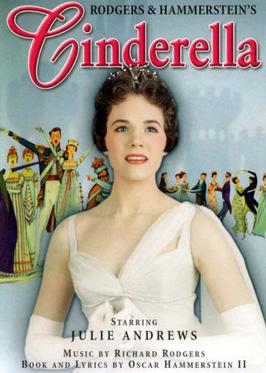
Rodgers and Hammerstein's Cinderella is a musical written for television, but later played on stage, with music by Richard Rodgers and a book and lyrics by Oscar Hammerstein II. It is based upon the fairy tale Cinderella, particularly the French version Cendrillon, ou la petite pantoufle de verre, by Charles Perrault. The story concerns a young woman forced into a life of servitude by her cruel stepmother and self-centered stepsisters, who dreams of a better life. With the help of her fairy godmother, Cinderella is transformed into a princess and finds her prince.

The Glass Slipper (1955) is an American musical film adaptation of Cinderella, made by MGM, directed by Charles Walters and produced by Edwin H. Knopf from a screenplay by Helen Deutsch. The music score is by Bronislau Kaper, the cinematography by Arthur E. Arling, the art direction by Daniel B. Cathcart and Cedric Gibbons and costume design by Walter Plunkett and Helen Rose.
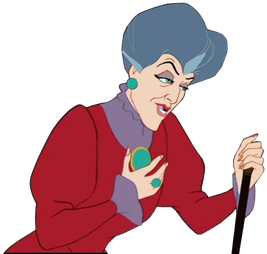
Lady Tremaine is a fictional character who appears in Walt Disney Productions' 12th animated feature film, Cinderella (1950) and its direct-to-video sequels Cinderella II: Dreams Come True (2002) and Cinderella III: A Twist in Time (2007). In the original film, Lady Tremaine is voiced by American actress Eleanor Audley, who would later voice Maleficent, the evil fairy, in Sleeping Beauty (1959) and Madame Leota in The Haunted Mansion. For the sequels and subsequent film and television appearances, Audley was succeeded by American actress Susanne Blakeslee who also currently voiced Maleficent, Cruella de Vil from 101 Dalmatians, and the Evil Queen from Snow White and the Seven Dwarfs. She is given the title of Lady in the original film.
The ugly stepsisters are characters in the fairy tale and pantomime, Cinderella. They are the daughters of Cinderella's wicked stepmother, who treat her poorly. The "ugly stepsisters" have been in variations of the story from as early as researchers have been able to determine.
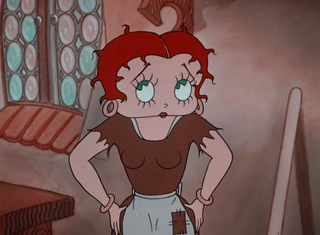
Poor Cinderella is a 1934 Fleischer Studios animated short film featuring Betty Boop. Poor Cinderella was Fleischer Studios' first color film, and the only appearance of Betty Boop in color during the Fleischer era. It is the final animated short presented by Max Fleischer and at Fleischer Studios, and the first Paramount Pictures animated short in color.
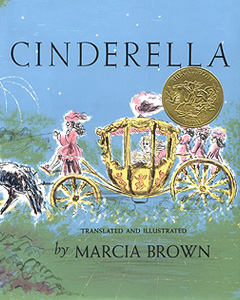
Cinderella, or the Little Glass Slipper is a book adapted and illustrated by Marcia Brown. Released by Charles Scribner's Sons, the book is a retelling of the story of Cinderella as written by Charles Perrault, and was the recipient of the Caldecott Medal for illustration in 1955. The book takes place in France, in a palace similar to other Cinderella stories.

Cinderella is an Italian-Japanese 1996 anime television series based on the fairytale of the same name by Charles Perrault and The Brothers Grimm. It was produced by Tatsunoko Productions and Mondo TV. The series originally aired from April 4 to October 3, 1996, comprising 26 episodes.

Hey, Cinderella! is a 1969 television special adaptation of the fairy tale Cinderella, produced by Muppets, Inc. in the United States and Robert Lawrence Productions in Canada, and featuring The Muppets created by Jim Henson, who also directed the special. It was written by Jon Stone and Tom Whedon, and scored by the music composer of Sesame Street, Joe Raposo. It featured Kermit in his first appearance as a frog, as well as Goshposh and Rufus and Splurge.
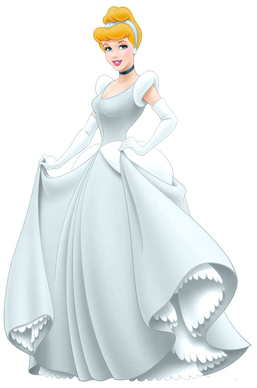
Cinderella is a fictional character who appears in Walt Disney Productions' 12th animated feature film Cinderella (1950). In the original film, Cinderella is voiced by American singer and actress Ilene Woods. For the sequels and subsequent film and television appearances, Woods was replaced by American actresses Jennifer Hale and Tami Tappan, who provide the character's speaking and singing voices.
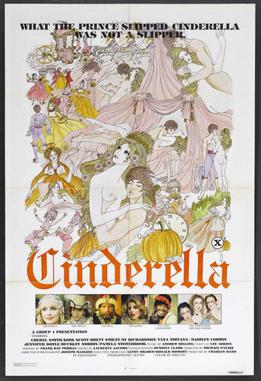
Cinderella is a 1977 American erotic musical comedy film directed by Michael Pataki and starring Cheryl "Rainbeaux" Smith, Brett Smiley, and Sy Richardson.
Cinderella is a 1979 animated Soviet film created by the studio Soyuzmultfilm. It is based on Charles Perrault's story, Cinderella.

Rodgers + Hammerstein's Cinderella is a musical in two acts with music by Richard Rodgers, lyrics by Oscar Hammerstein II, and a book by Douglas Carter Beane based partly on Hammerstein's 1957 book. The story is derived from the fairy tale Cinderella, particularly the French version Cendrillon ou la petite pantoufle de verre, by Charles Perrault. The story concerns a young woman forced into a life of servitude by her cruel stepmother. She dreams of a better life, and with the help of her Fairy Godmother, Cinderella is transformed into an elegant young lady and is able to attend the ball to meet her Prince. In this version, however, she opens the Prince's eyes to the injustice in his kingdom.
"Grimm Job" is the tenth episode of the twelfth season of the animated comedy series Family Guy and the 220th episode overall. It originally aired on Fox in the United States and Canada on January 12, 2014, and was directed by Joe Vaux and written by Alec Sulkin.
Cinderella is a Disney franchise that commenced in 1950 with the theatrical release of the 1950 film Cinderella. The series' protagonist is Cinderella, who was based on the character of the same name from the Cinderella fairy tale. The Disney film's character was originally voiced by American singer and actress Ilene Woods.
Cinderella is a 1955 West German family film directed by Fritz Genschow and starring Rita-Maria Nowotny, Renée Stobrawa and Werner Stock.














